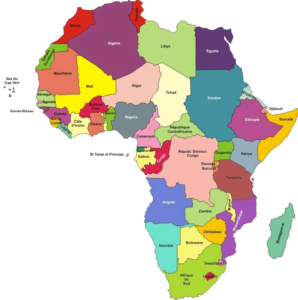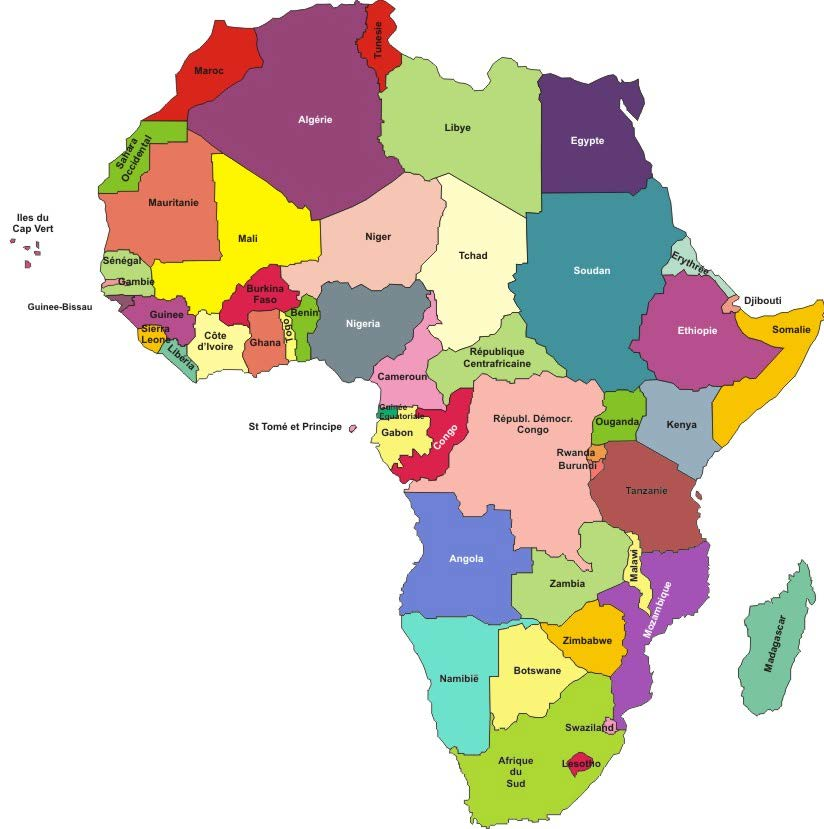UNFPA Africa :  Twenty-three (23) Gender Coordinators and Information Management Specialists from the West and Central Africa region benefited from a three-day training workshop on knowledge sharing and capacity building on key components of GBV coordination in humanitarian settings.
Twenty-three (23) Gender Coordinators and Information Management Specialists from the West and Central Africa region benefited from a three-day training workshop on knowledge sharing and capacity building on key components of GBV coordination in humanitarian settings.
The workshop, which is the first formal introduction to GBV in emergencies and the AoR GBV Coordination Manual, was organized in Somone, Senegal, from April 12-14 by the United Nations Population Fund for West and Central Africa in collaboration with the AoR Global Protection Cluster on GBV
Fifteen participants came from humanitarian countries in the region where GBV cluster systems have been activated-Burkina Faso, Mali, Niger, Nigeria, Chad, Niger, CAR and Cameroon.
Burkina Faso:
Strengthening health care: reflections on the process of recruiting 15,000 community-based health workers
The Department of Health, in collaboration with the Groupement d’intérêt public – Programme national de volontariat au Burkina Faso organized an information and scoping workshop.
Fifteen thousand community-based health workers (CBHWs) are being recruited to strengthen the health care offer in the Health and Social Promotion Centers (CSPS) and Medical Centers (MC).
Gabon: Official launch of the national distribution of orthopedic equipment to People Living with Disabilities (PLWD).
This distribution operation is part of the National Solidarity Program, which aims to provide full coverage and equitable access to technical aids for all people living with disabilities.
Benin :
Competition for the recruitment of hospital interns: The Government is preparing a new wave of medical elites.
The recruitment competition for hospital interns aims to recruit 30 doctors or medical students who will enter a circuit of 4 to 5 years of training to become accomplished specialists
The long-cherished wish has finally come true. The competition for the recruitment of hospital interns is effective after more than a decade of truce to the great joy of the actors of health and the teaching body. The launching ceremony took place on Tuesday, April 11, 2023 at the Faculty of Health Sciences of Cotonou in the presence of the Minister of Health.
The launching ceremony took place on Tuesday April 11, 2023 at the Faculty of Health Sciences of Cotonou in the presence of the Minister of Health, Pr Benjamin HOUNKPATIN, the Minister of Labor and Civil Service, Adidjatou MATHYS and the Minister of Higher Education and Scientific Research, Eleonore YAYI LADEKAN.
Niger: The Government of Japan has provided support to improve the provision of health care for vulnerable populations affected by insecurity in the health districts of the regions of Abala, Tillabéri and Tahoua in Niger by rehabilitating 2 integrated health centers (IHCs) benefiting 34,000 people; 18 mobile clinics enabling more than 6,000 patients to be consulted and nearly 2,600 children to be vaccinated; and the donation of an ambulance and medical equipment to contribute to improving the care of 10,338 inhabitants
Senegal: Dr. Habibou Ndiaye, S.G of the Ministry of Health and Social Action received on behalf of the Minister, Dr. Marie Khemesse Ngom Ndiaye, a donation from OMS Senegal: a batch of computer and office equipment for the Pharmaceutical Regulation Agency, cell phones for the survey missions of the Prevention Department and 6,000 platelets for the Mother and Child Health Department.
Côte d’Ivoire: covid-19: The meeting of the NATIONAL SECURITY COUNCIL held on April 12, 2023, made the following decisions:
-to lift the state of health emergency with immediate effect;
-to lighten the control mechanism at the FH airport;
-to integrate the Covid 19 activities in the health facilities on a routine basis
-to retain the Department of Infectious and Tropical Diseases of the Treichville University Hospital and the University Hospital of Bouaké as the only dedicated centers for the integrated management of diseases with epidemic potential
-to transfer the 13 other Covid 19 dedicated centers into the health system in order to strengthen the capacities of the hospitals where they are located…
Central African Republic: the problem of unregulated pharmacies, an alternative to expensive care and very limited access to care in this country that suffers from a chronic shortage of qualified health personnel, equipment, and medicines.
Ghana: Health authorities approved a new malaria vaccine developed by the University of Oxford – the first time this vaccine has been approved.The R21/Matrix-M vaccine, developed by Oxford University scientists and manufactured by the Serum Institute of India, “has been approved for use in children aged 5-36 months, the age group most at risk of death from malaria,” according to the University’s statement.
The Ghana approval “marks the culmination of 30 years of malaria vaccine research at Oxford, with the design and availability of a highly effective vaccine that can be delivered on an adequate scale to countries that need it most,” Adrian Hill, a vaccine specialist at Oxford who is in charge of the R21/Matrix-M program, said Thursday. It is “a low-dose vaccine that can be manufactured on a large scale and at a modest cost, which would allow hundreds of millions of doses to be delivered to African countries with a high malaria burden.
Afiya







OTHER ARTICLES
Strengthening pandemic prevention, preparedness, and response capacities in Senegal using the “One Health” approach
Africa Health Brief
Sex, Gender, and Medicine: Understanding Errors in Sex Assignment